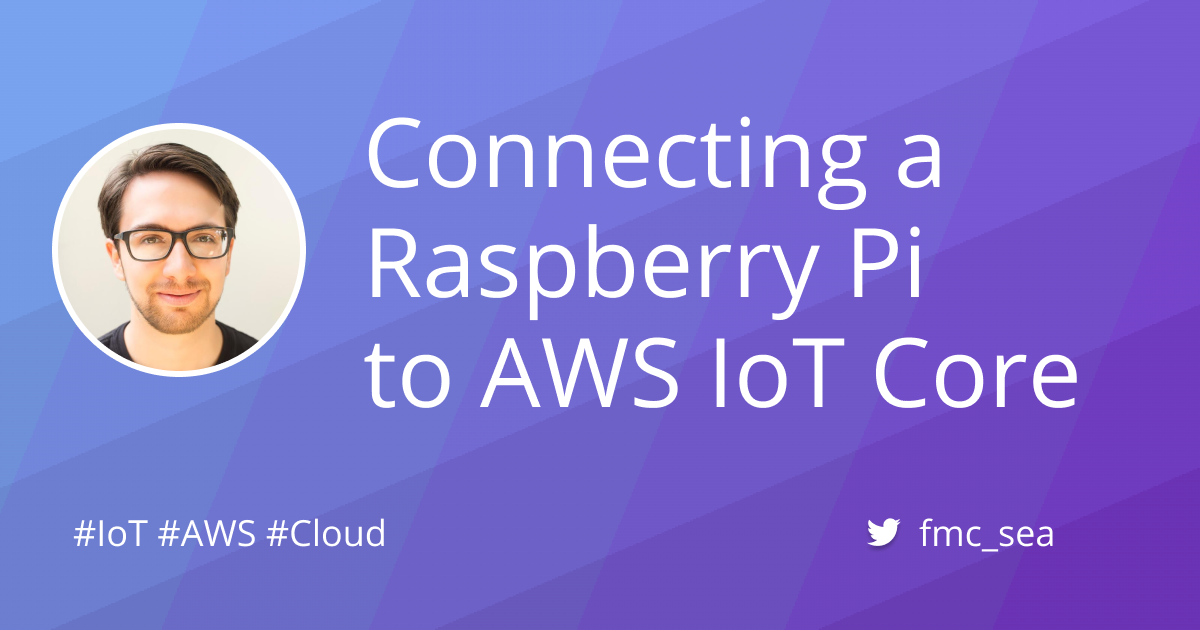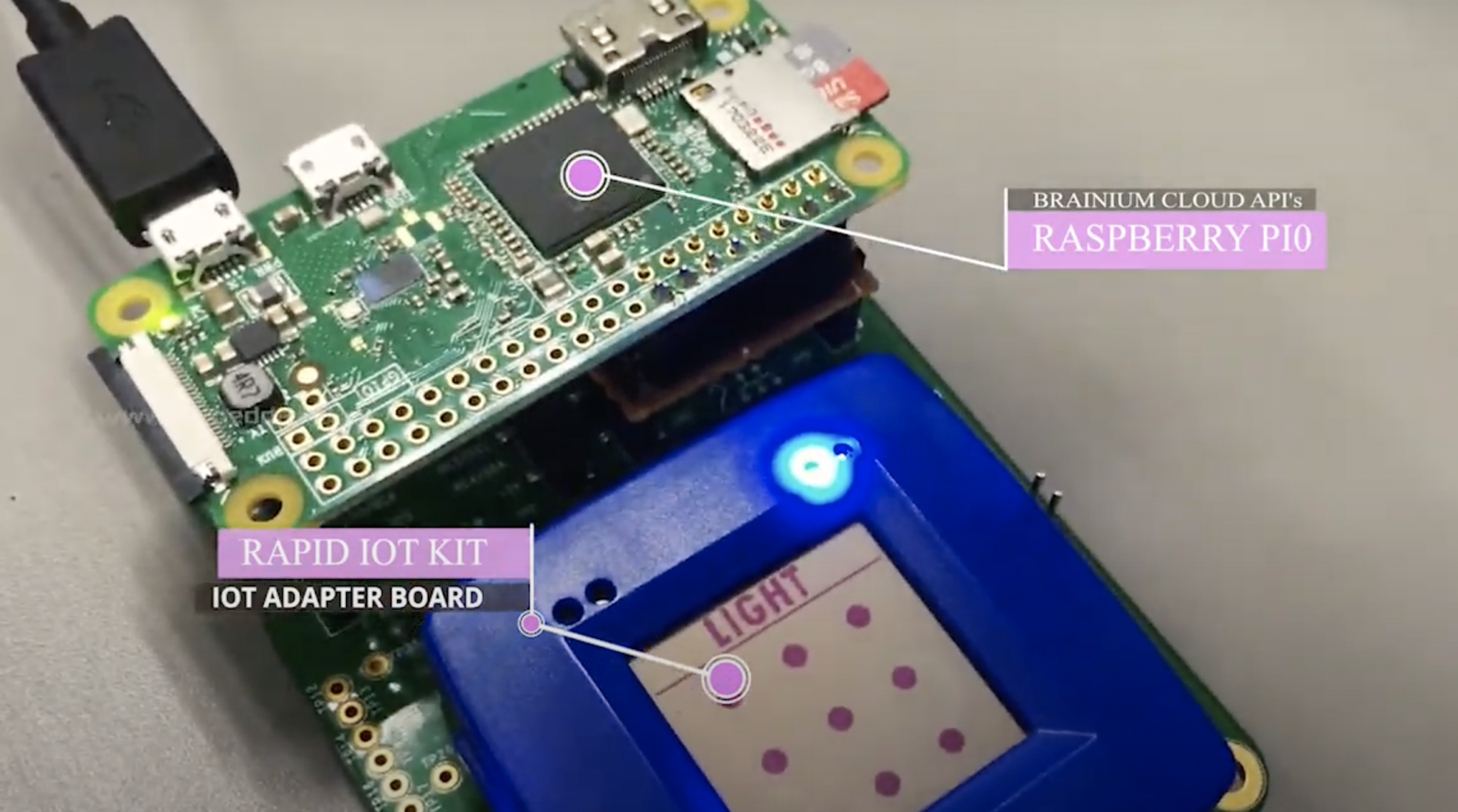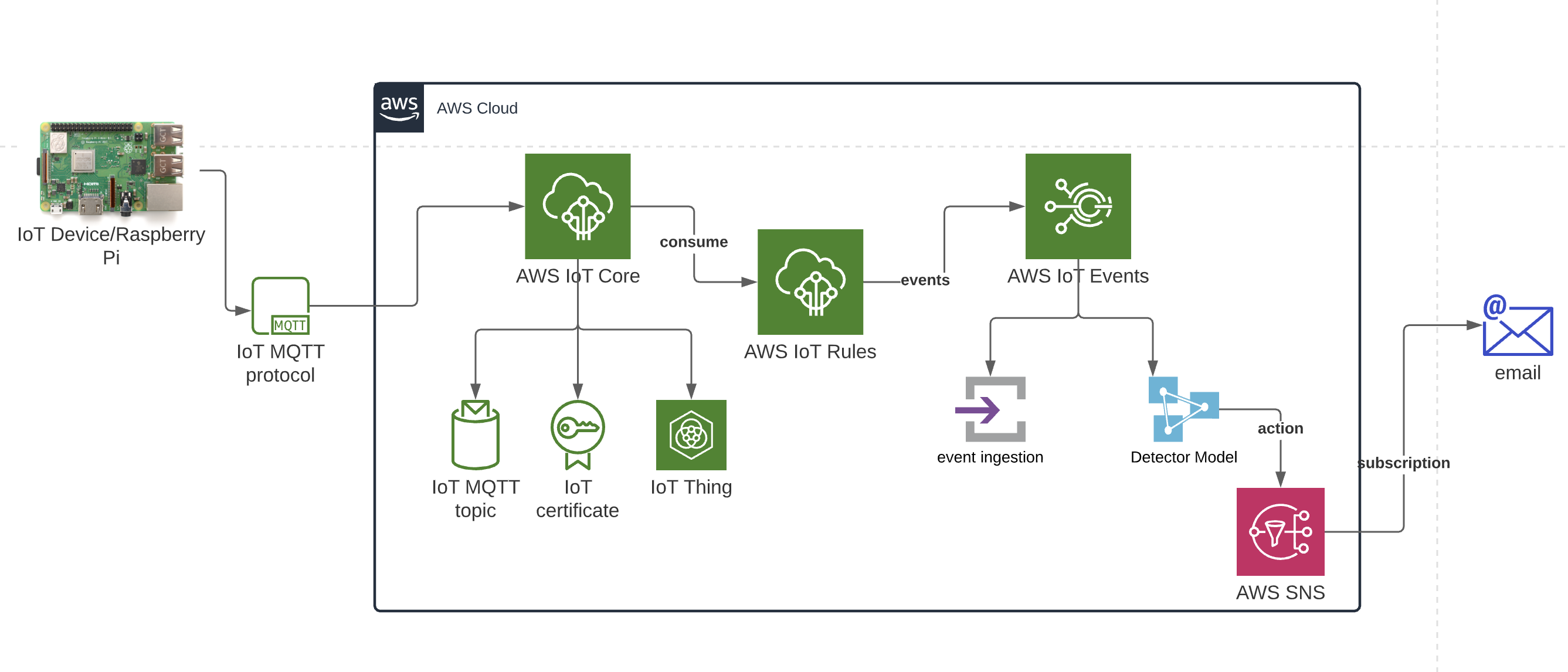Connecting remote IoT devices to AWS VPC using Raspberry Pi has become a crucial element in modern cloud-based solutions. As the Internet of Things (IoT) continues to grow, organizations are seeking secure, scalable, and cost-effective methods to manage their IoT infrastructure. AWS provides a robust ecosystem for IoT connectivity, and Raspberry Pi serves as an excellent platform for prototyping and deploying IoT applications. In this article, we will explore the best practices and steps to securely connect your remote IoT devices to AWS VPC using Raspberry Pi.
This guide is designed to provide you with actionable insights and practical steps to ensure your IoT deployment is secure, efficient, and compliant with industry standards. Whether you're a developer, system administrator, or an enthusiast, this article will walk you through the complexities of IoT security and AWS VPC configuration.
By the end of this article, you will have a clear understanding of how to leverage AWS services, configure Raspberry Pi as an IoT gateway, and establish a secure connection between your remote devices and AWS VPC. Let's dive in!
Read also:Is Iosgods Safe Exploring The Truth Behind The Popular Jailbreak Repository
Table of Contents:
- Introduction to IoT and AWS VPC
- Raspberry Pi Setup for IoT
- AWS VPC Configuration
- Securing IoT Connections
- Best Practices for IoT Security
- Troubleshooting Common Issues
- Scaling Your IoT Deployment
- Cost Management in AWS IoT
- References
- Conclusion
Introduction to IoT and AWS VPC
The Internet of Things (IoT) has revolutionized the way devices communicate and interact with each other. From smart homes to industrial automation, IoT devices are transforming industries. However, with the rise in IoT adoption, ensuring secure communication between devices and cloud platforms has become paramount.
What is AWS VPC?
AWS Virtual Private Cloud (VPC) is a service that enables you to launch AWS resources into a virtual network. This network is logically isolated from other networks in the AWS Cloud, providing you with complete control over IP address ranges, subnets, routing tables, and network gateways. By leveraging AWS VPC, you can create a secure and scalable environment for your IoT devices.
Why Use Raspberry Pi for IoT?
Raspberry Pi is a popular choice for IoT projects due to its affordability, versatility, and ease of use. It can act as an IoT gateway, bridging the gap between local devices and the cloud. With its GPIO pins, Raspberry Pi can interface with various sensors and actuators, making it an ideal platform for IoT applications.
Raspberry Pi Setup for IoT
Before connecting your Raspberry Pi to AWS VPC, you need to set it up properly. Follow these steps to configure your Raspberry Pi for IoT:
- Install Raspberry Pi OS: Begin by installing the latest version of Raspberry Pi OS on your device.
- Enable SSH: Secure Shell (SSH) allows you to remotely manage your Raspberry Pi. Enable SSH by creating an empty file named "ssh" in the boot partition.
- Configure Wi-Fi: If your Raspberry Pi is connected wirelessly, configure Wi-Fi by adding a "wpa_supplicant.conf" file to the boot partition.
- Update the System: Run the following commands to update your Raspberry Pi:
sudo apt updatesudo apt upgrade
Installing AWS CLI on Raspberry Pi
To interact with AWS services, you need to install the AWS Command Line Interface (CLI) on your Raspberry Pi. Follow these steps:
Read also:The Concept Of Painless Death Understanding And Embracing A Peaceful Passage
- Download the AWS CLI installer:
curl "https://awscli.amazonaws.com/awscli-exe-linux-aarch64.zip" -o "awscliv2.zip" - Unzip the installer:
unzip awscliv2.zip - Run the installer:
sudo ./aws/install
AWS VPC Configuration
Configuring AWS VPC is essential for creating a secure and isolated environment for your IoT devices. Follow these steps to set up your VPC:
- Create a VPC: Use the AWS Management Console to create a new VPC with a custom CIDR block.
- Add Subnets: Divide your VPC into multiple subnets for better organization and security.
- Set Up Route Tables: Define how traffic flows within your VPC by configuring route tables.
- Configure Security Groups: Use security groups to control inbound and outbound traffic for your instances.
Connecting Raspberry Pi to AWS VPC
To connect your Raspberry Pi to AWS VPC, you need to:
- Assign an Elastic IP: Allocate an Elastic IP address to your Raspberry Pi for consistent connectivity.
- Set Up a NAT Gateway: Use a NAT gateway to allow your Raspberry Pi to access the internet while remaining private.
- Configure SSH Access: Ensure that your Raspberry Pi can securely connect to AWS VPC using SSH keys.
Securing IoT Connections
Security is a top priority when dealing with IoT devices. Here are some measures to secure your IoT connections:
Use Encryption
Encrypt all data transmitted between your IoT devices and AWS VPC. Use protocols like TLS (Transport Layer Security) to ensure secure communication.
Implement Authentication
Use AWS IoT Core to authenticate and authorize your devices. Each device should have a unique X.509 certificate for secure identification.
Monitor and Audit
Regularly monitor your IoT devices for suspicious activity. Use AWS CloudTrail and AWS Config to audit your resources and ensure compliance.
Best Practices for IoT Security
Here are some best practices to enhance the security of your IoT deployment:
- Regular Updates: Keep your Raspberry Pi and IoT devices up to date with the latest security patches.
- Minimize Attack Surface: Disable unnecessary services and ports on your Raspberry Pi.
- Use Strong Passwords: Enforce strong password policies for all accounts and devices.
- Limit Access: Restrict access to your AWS resources using IAM policies and roles.
Troubleshooting Common Issues
Here are some common issues you may encounter and how to resolve them:
SSH Connection Issues
If you're unable to connect to your Raspberry Pi via SSH, check the following:
- Ensure that SSH is enabled on your Raspberry Pi.
- Verify that the security group allows SSH traffic.
- Check your internet connection and firewall settings.
AWS VPC Connectivity Issues
If your Raspberry Pi cannot connect to AWS VPC, verify the following:
- Ensure that the VPC and subnets are configured correctly.
- Check the route tables and NAT gateway settings.
- Verify that the security groups allow necessary traffic.
Scaling Your IoT Deployment
As your IoT deployment grows, you may need to scale your infrastructure. AWS provides several services to help you scale efficiently:
- AWS IoT Core: Manage millions of devices with AWS IoT Core.
- AWS Lambda: Use serverless functions to process IoT data in real-time.
- AWS S3: Store and analyze IoT data using Amazon S3.
Cost Management in AWS IoT
Managing costs is crucial for any IoT deployment. Here are some tips to optimize your AWS costs:
- Use Free Tier Services: Take advantage of AWS Free Tier for initial development and testing.
- Monitor Usage: Use AWS Cost Explorer to track your usage and identify cost-saving opportunities.
- Optimize Resources: Right-size your instances and use spot instances when possible.
References
Here are some references for further reading:
- AWS Documentation: https://docs.aws.amazon.com/
- Raspberry Pi Documentation: https://www.raspberrypi.com/documentation/
- AWS IoT Core: https://aws.amazon.com/iot-core/
Conclusion
Securing IoT connections to AWS VPC using Raspberry Pi requires careful planning and execution. By following the steps outlined in this article, you can ensure that your IoT deployment is secure, scalable, and cost-effective. Remember to adhere to best practices and regularly monitor your infrastructure for potential vulnerabilities.
We encourage you to share your thoughts and experiences in the comments section below. If you found this article helpful, please consider sharing it with others. For more in-depth guides and tutorials, explore our other articles on IoT and AWS.


